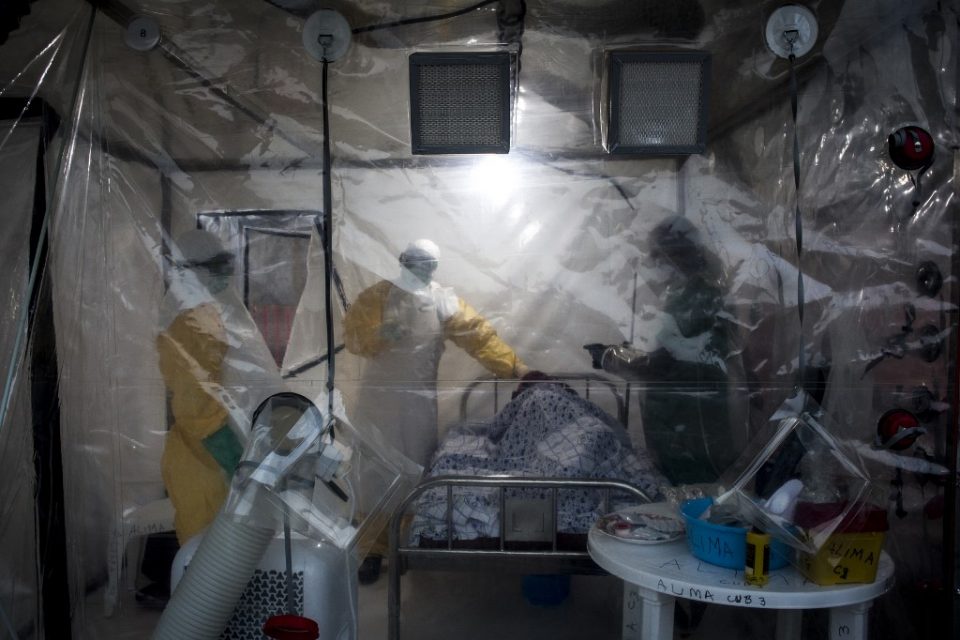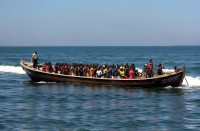
(Eagle News) — The World Health Organization said that it has confirmed “a new case of Ebola virus disease” in the city of Beni in the Democratic Republic of the Congo (DRC) amid the COVID-19 pandemic.
“While not welcome news, this is an event we anticipated. We kept response teams in Beni and other high risk areas for precisely this reason,” said Dr Tedros Adhanom Ghebreyesus, WHO Director-General.
Tedros said that with the confirmed case, the scheduled announcement this Monday, April 13, on the supposed end of the Ebola outbreak in this African nation would no longer be pushing through.
“Unfortunately, this means the government of #DRC will not be able to declare an end to the #Ebola outbreak on Monday, as hoped,” the WHO chief said on Twitter.
The country’s health ministry said the case — the first recorded in 52 days — was a 26-year-old man.
“Our teams, in collaboration with the WHO, are already on the ground to carry out further investigations and implement health measures,” the ministry’s Ebola task force said in a statement.
A health official said the patient reportedly died in hospital early Thursday, several days after falling ill with Ebola symptoms.
The WHO said that “as with all confirmed cases, efforts are already underway to find everyone who may have been in contact with the person in order to offer them the vaccine and monitor their health status.”
It said that a system of active Ebola surveillance system is in place to respond to “this ongoing outbreak in DRC”, and part of this effort is investigating the thousands of alerts — meaning persons possibly infected with Ebola or deaths which could be related to Ebola — everyday.
“WHO has worked side by side with health responders from the DRC for over 18 months and our teams are right now supporting the investigation into this latest case,” said Dr Matshidiso Moeti, WHO Regional Director for Africa. “Although the ongoing COVID-19 pandemic adds challenges, we will continue this joint effort until we can declare the end of this Ebola outbreak together.”
WHO said that the news of the confirmed Ebola case came minutes after the conclusion of a meeting of the International Health Regulations Emergency Committee on Ebola in DRC. The Emergency Committee will reconvene next week in order to re-evaluate their recommendations in light of this new information.
Prior to this, the last person who was confirmed to have Ebola in DRC tested negative twice and was discharged from a treatment centre on 3 March 2020, WHO said.
“As of 10 April 2020, 3456 confirmed and probable cases and 2276 deaths have occurred as a result of the outbreak,” it added.
There has been five deaths so far due to COVID-19 in DR Congo which recorded 60 cases, based on data from the Johns Hopkins University COVID-19 dashboard.
On March 10, WHO annnounced the first reported COVID-19 case in the country after health authorities said tests found that a Congolese national, who had recently returned to Kinshasa from his residence in France had tested positive for the virus.
The Ebola virus epidemic, the 10th in the Democratic Republic of Congo’s history, dates back to August 1 2018.
According to the latest WHO toll, published on Twitter, 2,273 people have died, making it the second deadliest outbreak in the 44-year known history of the disease.
Health officials had been hoping to bring the curtain down on the epidemic on Monday, in line with guidelines based on the incubation period of the Ebola virus.
The announcement had also been seen as a potential boost for the campaign against coronavirus, which is largely being combatted on the same lines of tracing, isolating and quarantining people who have been in contact with patients.
The epidemic began on North Kivu province, on the border with Uganda, and spread to neighbouring Ituri and South Kivu.
The region is plagued by militias, and violence has proved to be a major encumbrance to stamping out the virus.
On the plus side, health officials say the use of unlicensed, but tested, vaccines has played a major part in rolling back the disease.
(with a report from Agence France Presse)






